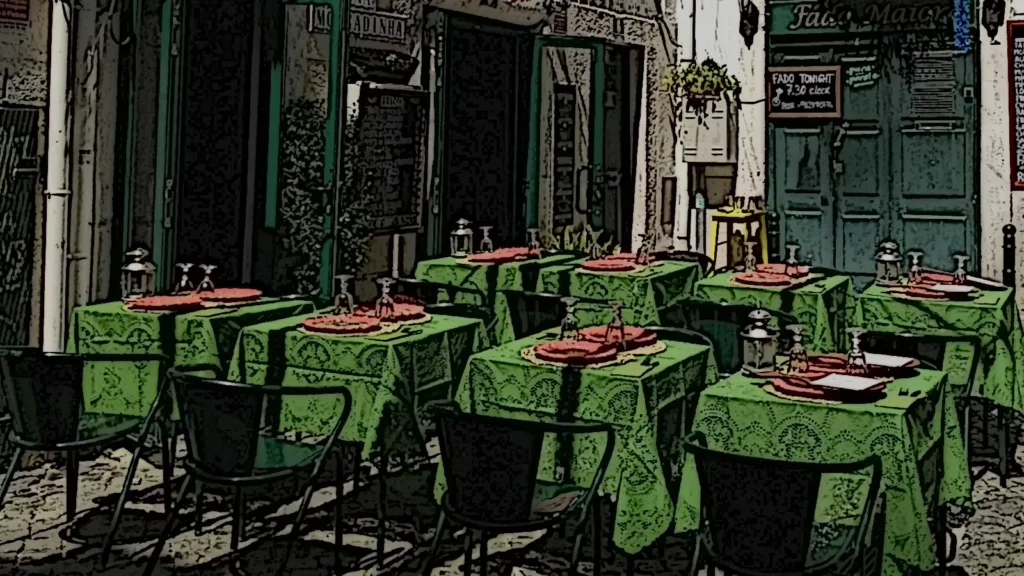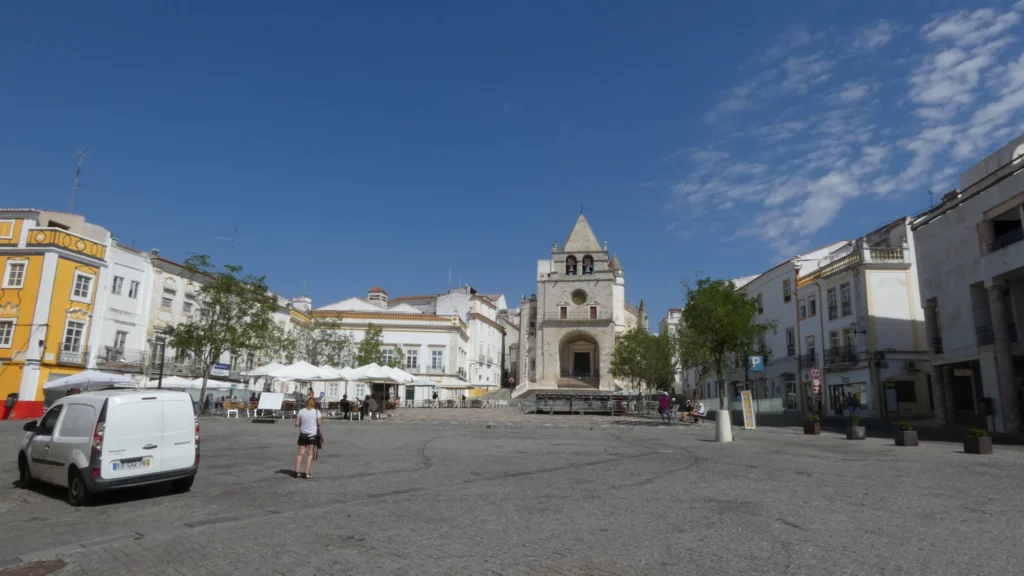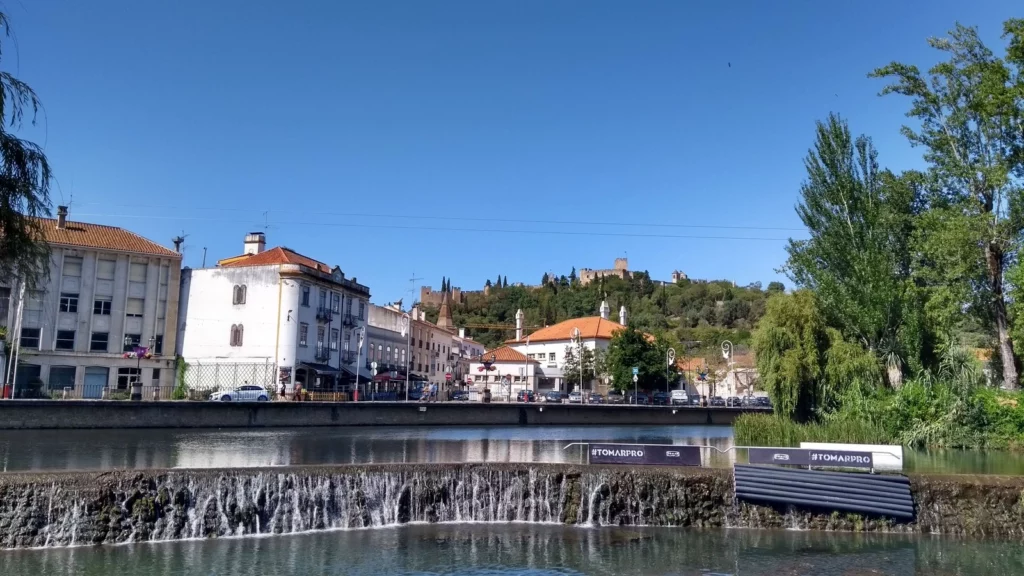The revolution of the Captains for liberty
25 April is the Portuguese day to celebrate the liberty. It is an important day in Portugal and a National holiday. Together with Easter, Christmas and 10 June, this is one of the most important days during the year. The Portuguese people and community remembers the Carnation Revolution of 25 April 1974. This is known as a peaceful military coup to make an end at the Estado Novo and return to a real democracy. Or in other words: the revolution of the Captains for liberty.
Below, I explain more about this coup, why they did it and how they came to the name of Carnation Revolution. Maybe you also are wondered how a revolutionary coup can go peacefully. Finally, what happened afterwards?
What are the topics of this post?
What was the 25 April 1974 Carnation Revolution?
"A revolutionary military coup"
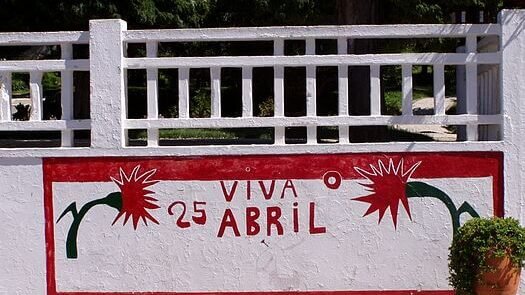
The Armed Forces Movement
"A military group of left-leaning officers"
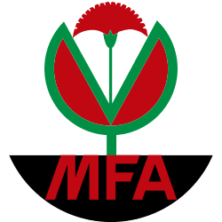
We are in the 70's of the 20th century. Left-leaning, more socialistic officers organized themselves in a military group. This was called "o Movimento das Forças Armadas" (MFA), or in English "Armed Forces Movement. They were not satisfied with the current government of the Estado Novo and how they managed the country. The MFA had only one goal: abolishing the current government regime and return to a real democracy. This group knew that it wouldn't be easy to do, but also not impossible. Only a revolutionary military coup seemed a successful option. They fought for liberty for the people.
What was the Estado Novo?
"The Salazarismo government regime"
In 1910, Portugal transformed from a Kingdom to a Republic. This took place on 5 October. António Salazar became Prime minister of Portugal in 1932. From 1933, he introduced the Estado Novo by the approval of the Portuguese Constitution. It was a more dictatorial, fascist and autocratic political regime. The Estado Novo ended by the Carnation Revolution on 25 April 1974. So, it stood alive for 41 years. Many people also call it "o Salazarismo".
"Not a dictatorial period for everyone"
Some don't like it to call the period of the Estado Novo as a dictatorial period. Because, for them it was a period that they had everything that they needed and everything was well organized. After the Carnation Revolution, the freedom returned to the country and the people. For some it felt like a chaotic time was coming. What were the rules to follow?
"Neutral during World War II"
Portugal is known as a neutral country during World War II. Although, being neutral is relative if the spies came to your territory for consultations. Also a lot of people left Europe from the airport of Lisbon. This also was during the Estado Novo. It is true, many Portuguese people had not a bad life when there was a war in other European countries.
10 Facts about the Carnation Revolution of 25 April 1974
"Thing to know about the Carnation Revolution"
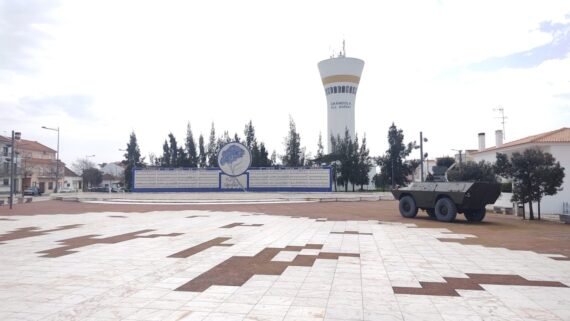
The list below gives you 10 interesting facts about the Carnation Revolution of 25 April 1974. It is a good overview with a lot of background information. The best way to understand this coup is by getting the feeling of the mindset of that time. With these 10 facts, I want to give you a good introduction. Open every item to get a response on your questions.
What was the basis reason for a coup?
Already in 1961, Portugal started a colonial war in Africa. Many soldiers didn’t believe in this war. They don’t wanted go to Africa to fight overthere. These officers created “O Movimentado das Forças Armadas”, the Armed Forces Movement. This group had no other goal than making an end at the dictatatorial regime of the Estado Novo and to return to a real democracy. The officers of the MFA were called Captains. Still today, they are known as "Os Capitães de Abril", the Captains of April.
Why did they go for a military coup?
A militar coup was not the first option to make an end at the dictatorship of the Estado Novo. Many soldiers already knew that they could’t change anything in a diplomatic way and with bureaucracies. The only way was with a military coup.
Did you know that it all started by a car breakdown?
According a story, Vasco Lourenço and Otelo Saraiva de Carvalho, members of the MFA, had a flat tire when they returned from one of the first meetings. This happend in the middle of the night, around 2h in the morning. While changing the tire, Vasco would have said to Otelo that they weren’t going to solve anything with bureaucracies. They should do a coup and call elections. Otelo would have answered on this: “But do you also think so? This is my dream!” It would have been the start to iniciate the military coup, which is now known as the Carnation Revolution. After the coup, Vasco Lourenço became the president of “The 25 April Association”. An association to keep alive the spirit of the movement of the coup.
What was the signal for the troops to start the coup?
The MFA had 2 hidden signals to inform their troops. These were transmitted on the radio.
"First signal"
A first signal was given in the evening of 24 April 1974, at 22h55. On Emissores Associados de Lisboa, the following message was emitted:
“It is five minutes to 23:00, with you, Paulo de Carvalho, with the Eurovisional Song of 74, E depois do Adeus”
With this signal, the troops knew that everything was ready.
"Second signal"
The second signal was to know that everything was operational to advance to Lisbon.
This signal was given at 0h25 in the morning of 25 April.
Rádio Renascença broatcasted “Grandola Vila Morena” by Zeca Afonso after the first verse of the song was read.
How long lasted the military coup?
The coup of the Carnation Revolution started in the evening of 24 April 1974. The real actions started in the night of 24 April to 25 April 1974. Already in the morning of 25 April 1974 surrendered the Government, which took place in the Quartel do Carmo on the Largo do Carmo in the city center of Lisboa. So, this whole opperation took only a few hours. Although, it took to the end of April to manage and release the political prisons.
Were there any bombings during the Carnation Revolution?
There were no bombings during this revolution. In the morning of 25 April, a frigate on the Tagus river got the order to open fire. But because there were so many people in the city and othe boats on the river, this order was not carried out. So, maybe it was a good decision of the Lisboetas to not stay at home.
Did the revolution really had no victims?
During the military actions of the coup itself, indeed they made no victims. At the end of the day, the Lisboetas demanded the end of the political police, the government forces. Their leaders shooted at the population with a result in the dead of 4 civilians and several wounded people. These were the only victims of the Carnation Revolution.
Why is the military coup of 25 April 1974 also called the Carnation Revolution?
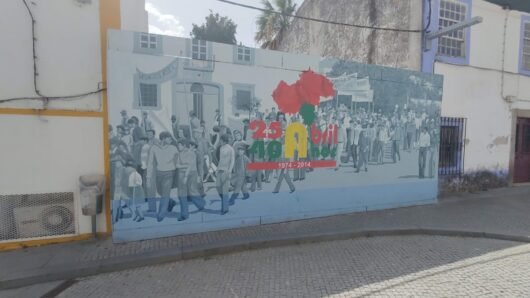
In the morning of 25 April, many people came in streets of Lisboa. Althrough the military advised to stay at home for safety. Carnations are the flowers of this moment of the year. A soldier at Rossio got a carnation of a women and placed it in the barrel of his gun. Other soldiers imitated this action. Images of soldiers with carnations in the barrel of their guns were broadcasted on all TV channels. Because in essence it was a peaceful coup, the carnation became the symbol of this revolution.
Who were the most famous figures of the Carnation Revolution?
"Captains of the control roon"
As already told above, the initial promoters of this military coup were Vasco Lourenço and Otelo Saraiva de Carvalho. They coordinated the actions from the control room.
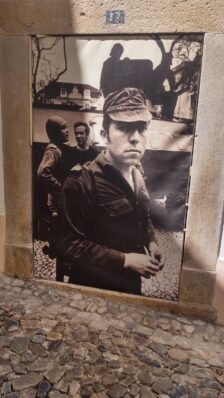
"The Hero of the Carnation Revolution"
While the troops itself were led by captain Salgueiro Maia. He is known as
“The Hero of the Carnation Revolution”
"The deposed Prime Minister and President"
Of course, also the Prime Minister and President of Portugal played an important role. The honor of being deposed as Prime Minister was reserved to Marcelo Caetano, as well as President Américo Tomás.
Was the 1st planned coup the right one?
25 April 1974 was not the first date they planned for a coup. Already on 16 March 1974 they tried a military coup. From Caldas da Rainha left a military column in the direction of Lisbon. They were accompanied by regiments from Vendas Novas, Mafra and Lamego. The mission was aborted by rebellations while the military arrived in Santarém. So, they had no chance of success anymore. The military returned to Caldas da Rainha and were arrested overthere.
Watch the movie
"A tribute to the liberty"
Around 2000, they made a movie about the Carnation Revolution. The movie has the title: "Os Capitães de Abril". This also is how the heroes of the revolution are called. Also on YouTube, you can watch this full movie.
What after the Carnation Revolution?
"Consequences in many areas"

A turbulent period
"A military group of left-leaning officers"
Firstly, most people are happy to be free and not to live under a fascist government but in liberty. It is no wonder, when the first joy has passed, that rebellion and turbulent times may occur. Fortunately, rebellion had no chance as it was quickly suppressed. Now, that the government was gone, it was time to install a new one. The first free election in Portugal was held one year after the Carnation Revolution, on 25 April 1975. From this moment on, the Socialist Parties became very popular in the country. Still today this is the case.
Colonial history
"Decolonization process"
Portugal still had a lot of colonies in Africa and Asia. After the Carnation Revolution of 1974, the decolonization process took place in a very fast pace. The colonies of the Portugal became independent and the Portuguese armies were withdrawn.
Read More
"Selected for you"
You want to read more and get noticed about the posts ideal for you. Subscribe to our newsletter. This is the ideal way to stay tuned about all our posts and videos in the spotlight and selected for you.
The content of this page is copyright of Lindo Portugal.
© 2023 lindoportugal.eu
With media content of Galeria Sámuel.

